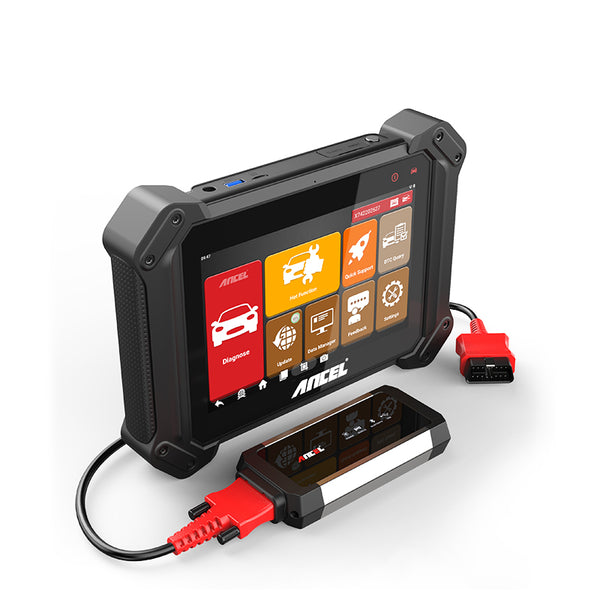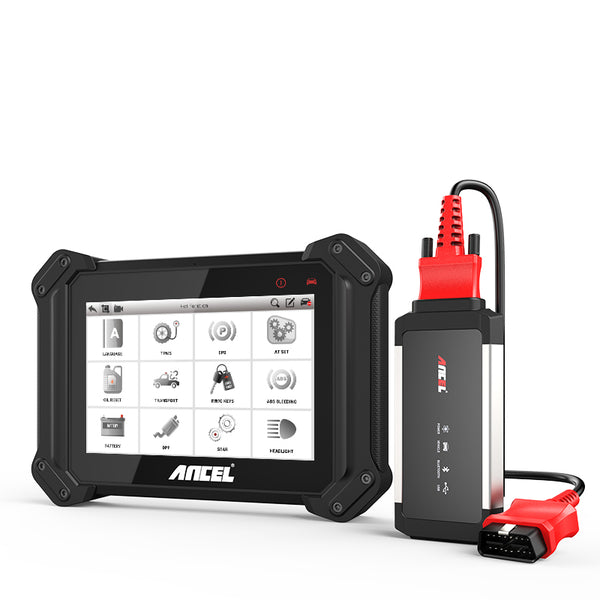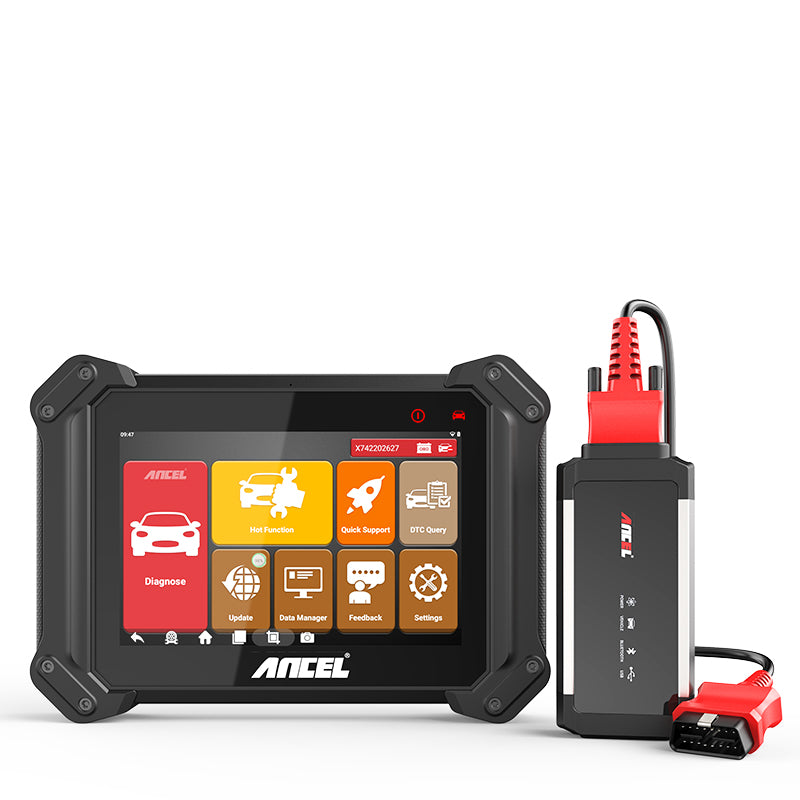OBD2 scanners stand as essential tools for both professional mechanics and automobile enthusiasts. These scanners play a pivotal role in diagnosing problems within a vehicle’s engine and broader management systems. However, the pressing concern that often arises with their use is whether these devices can cause damage to the Engine Control Unit (ECU), the sophisticated hub that governs the vehicle’s engine processes.
OBD2 Scanners and ECU Functionality
An OBD2 scanner is designed to plug into the vehicle’s onboard diagnostics port to access a wealth of data from the ECU. This data includes error codes, which are critical in diagnosing problems, and a range of real-time performance data, such as engine temperature, fuel system status, and more.
The ECU itself is a highly advanced computer that controls various functions of the vehicle’s engine, including fuel injection rates, ignition timing, and emission controls. It processes information from numerous sensors, adjusting the engine operations to optimize performance, ensure fuel efficiency, and minimize emissions.
Related Reading: What Is Ecu Programming?
Can OBD2 Scanners Harm the ECU
Direct Impact on the ECU
Generally, the use of OBD2 scanners is safe as these devices are primarily designed for reading data without altering the ECU’s programming. Most standard diagnostic procedures involve passive data reading, which poses no risk to the ECU’s integrity. However, the capability of some advanced scanners to reprogram or flash the ECU firmware introduces a layer of risk.
Reprogramming Risks: Reprogramming or flashing the ECU with an OBD2 scanner should be approached with caution. If the scanner is disconnected, or if there is an interruption in power during the reprogramming process, the ECU can become corrupted. This corruption can lead to vehicle malfunctions, and in severe cases, it may require a complete replacement of the ECU.
Quality of OBD2 Scanner
The safety and effectiveness of using an OBD2 scanner also depend heavily on the quality of the scanner itself.
Cheap Scanners and Faulty Equipment: Low-quality scanners are more likely to malfunction, providing incorrect data or potentially delivering voltage spikes that could disrupt or damage the ECU’s operations.

Safeguarding Your Vehicle’s ECU When Using OBD2 Scanners
Implementing certain best practices can significantly reduce the risk of damaging the ECU when using an OBD2 scanner:
Use Recommended Scanners: It is crucial to choose a scanner that is recommended or approved by the vehicle’s manufacturer. This ensures the scanner's compatibility and reliability in interacting with the vehicle’s ECU.
Keep the Vehicle in Stable Conditions: Before connecting the scanner, make sure the vehicle is parked and stable with a fully charged battery. This reduces the risk of data corruption during reprogramming, as the vehicle’s electrical system remains stable.
Regular Updates and Maintenance: Ensure that both the scanner and its software are regularly updated. This maintains the scanner’s accuracy and compatibility, safeguarding the ECU from potential errors in diagnosis and programming.
Seek Professional Help for Complex Tasks: For complex diagnostic or reprogramming tasks, it is wise to consult with a professional mechanic who specializes in automotive electronics. These experts have the precise tools and updated software needed to handle sensitive tasks without compromising the ECU’s functionality.
$439.99
Advanced Car Scanner with ECU Programming
Introducing the ANCEL V6 Pro, the cutting-edge diagnostic tool engineered to transform the way you approach car repair and maintenance. Designed for the discerning mechanic who demands precision, versatility, and efficiency, the ANCEL V6 Pro is more than just a scanner—it's a comprehensive solution that empowers you to tackle any challenge in modern automotive diagnostics.
Full-System Diagnostics Tailored to Professional Needs
The ANCEL V6 Pro excels in offering an all-encompassing diagnostic experience with its all system diagnostics capability. This tool meticulously checks and reports on a wide array of vehicle systems, ensuring you can swiftly identify and rectify issues across:
- Engine: Get to the heart of engine performance issues with detailed diagnostics.
- BMS (Battery Management System): Ensure optimal battery health and functionality.
- ABS (Anti-lock Braking System): Diagnose and address brake system concerns accurately.
- SAS (Steering Angle Sensor): Calibrate and adjust the steering angle after repairs.
- SRS (Supplemental Restraint System): Check the airbag system for errors and status.
- Air Conditioning: Troubleshoot and tune the HVAC system for peak performance.
- Transmission: Analyze transmission health and performance for smooth operation.
- Door Lock Systems: Diagnose and manage central locking system issues.
- Body (Electrical Control Unit): Address electrical issues affecting the vehicle's body.
- TPMS (Tire Pressure Monitoring System): Ensure tires are monitored and maintained for safety.

ECU Coding and Key Programming
Unlock the full potential of vehicles with the V6 Pro’s advanced ECU coding capabilities. This feature allows you to reprogram the Engine Control Unit to meet various specifications, enhancing vehicle performance and functionality. Additionally, the key programming feature supports immobilizer control, enabling you to handle key and security-related issues, making it indispensable for modern automotive service providers.
Active Test/Bi-Directional Control
Step into a new realm of diagnostic work with the ANCEL V6 Pro’s Active Test feature, which provides Bi-Directional Control. This allows you to send commands to systems and components to verify their operational integrity without using the vehicle’s controls.
User-Friendly Interface with Advanced Technology
The ANCEL V6 Pro is equipped with an 8.0-inch touchscreen that offers an intuitive user interface, powered by Android 10.0 OS, making it one of the most user-friendly scanners on the market. The large screen makes navigation a breeze, allowing you to quickly move between tasks with ease and efficiency.
Ongoing Support and Updates
To keep pace with the ever-evolving world of automotive technology, the ANCEL V6 Pro comes with a 2-year free update policy. This ensures that your diagnostic tool is always up to date with the latest software, covering newer vehicle models and additional functionalities as they become available.
Conclusion
While the question of whether an OBD2 scanner can damage an ECU is valid, understanding and mitigating the associated risks can allow car owners and technicians to use these tools effectively and safely. By adhering to best practices, using high-quality equipment, and seeking expert help when necessary, you can leverage the full capabilities of OBD2 scanners to enhance vehicle diagnostics without endangering the ECU.
FAQs
What are the risks associated with reprogramming the ECU using an OBD2 scanner?
Reprogramming or flashing the ECU involves risks such as data corruption if the scanner disconnects or if there's a power interruption during the process. This can lead to vehicle malfunctions or require the ECU to be completely replaced.
What precautions should be taken when using an OBD2 scanner?
To minimize risks, use a scanner recommended by the vehicle manufacturer, ensure the vehicle is stable and the battery is fully charged before connecting the scanner, keep the scanner’s software up to date, and consult a professional mechanic for complex reprogramming tasks.
Can an OBD2 scanner perform key programming and ECU coding?
Some advanced OBD2 scanners, like the ANCEL V6 Pro, can perform tasks beyond standard diagnostics such as key programming and ECU coding, which allow for adjustments in vehicle settings and enhancements in performance and functionality.















